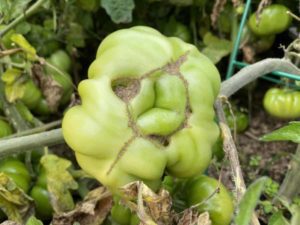Aphids are significant pests that attack and feed on crops on the farm, garden, and indoors. They feed by sucking sap from the leaf veins which may have some negative effects like curling leaves and shrinking leaves. Hoping the aphids die off naturally on their own is not recommended.
Aphids live to be about 30 days old and that’s how long you will have to wait. During this time it is estimated that they will have given rise to about 80 offspring. The more aphids present on your plant, the bigger the damage will be. The best course of action is to get rid of any aphids you come across as soon as possible to prevent the damage from multiplying.
With that said, the damage aphids cause is only significant over long periods of exposure to the pests and with increasing population. One insect sucking on the leaf is okay but imagine a couple hundred thousand of them sucking and you can see how you get from a healthy leaf to a curled-up and shriveled leaf.
Consequences of letting aphids die off naturally
Healthy plants can easily put up with an aphid population. Plants get aphid problems when they are weakened by stress from lack of water (drought) or some other existing diseases, unfavorable soil conditions, and overcrowding. Letting aphids die off naturally can lead to a range of consequences from mild to severe. Severe would mean the death of the crop.

Reduction in leaf sizes and harvest quality
While you wait for aphids to die off, they thrive off feeding on the crops you planted and multiply on the leaf. Their feeding drains the leaf of water and nutrients making it impossible for the leaf to grow optimally to maturity.
Because leaves are a source of food for the plant, fruiting trees infested by aphids will only produce a smaller number of tiny fruits. That is if they produce any at all. For leafy vegetables, where the leaf is consumed, they are usually not presentable and you might have very tiny leaves for you to make salads or with or take to the market.
Producing honeydew which attracts unwanted insects like ants
Aphids feed on the sugars produced by plants and as result, they excrete a lot of sugar as waste from their system called honeydew. The sweetness of honeydew attracts insects such as ants which may carry with them other diseases and fungal spores that will germinate and grow on the leaves.
Honeydew also acts as a favorable source of food for mould. Spores traveling in the air get deposited on the leaves of the crop, and because honeydew is present, the spores germinate and grow into mature moulds which hamper the crops’ transport systems resulting in low activity and yield.
Carrying diseases and viruses to the plant
Insects attracted to the plant by the honey may act as vectors which means they carry disease-causing organisms with them as they climb up the plant. These could be bacteria, viruses, and fungi which may interfere with your plants’ health.
How did your plants even get aphids?
You might be puzzled as to how aphids got into your indoor garden when all the windows and doors were closed for instance. Aphids are found on the underside of other plant leaves with the exception of root aphids. They attach to clothes or animal fur from where the aphids are deposited in your garden. Aphids can also be blown into your garden by the wind.
Attached on clothes and other wearables
Aphids attach to your clothes while you go to an infected field, or the market or near vegetation infested with aphids. Once, you get to your plants they get dislodged and deposited while you are handling them. You could also carry them home on vegetables you purchased from the farmers’ market.
Blown-in by the wind
Outdoors, aphids may be brought in by wind from other plants to yours. They can be carried over significant distances in the wind because they are tiny and light.
Attached on animal fur
Another source is animals moving through your gardens such as dogs, cats, rodents, and birds. They may carry aphids from one plant to another in your garden or from far away.
What you can do to get rid of aphids
Once the aphids attack your plants, there are a few measures you can take to get rid of them because hoping they die off naturally is not an option. The techniques vary depending on the number of bugs and crops you are dealing with, mode of action, and time you have available to perform the act.
Because aphids are loosely attached on the bottom of crop leaves, you can:
- Spray the aphids with cold water. Cold water is a deterrent for most organisms. The hock from the cold water will cause them to fall off the plant from where you can collect them and dispose of them far away.
- Plucking off aphids with your fingers. This technique is useful if you are dealing with a few plants with a mild aphid attack. It would otherwise take too much time if the infestation is at an advanced stage to remove the aphids by plucking.
- You can spray the aphids with insecticidal soap and neem oil.
- Apply a mixture of water and dish soap. Spray directly on the aphids because that is where it is most effective and might reduce any adverse effects from spraying the entire leaf with soap. This should be done every 2 to 3 days for about 4 weeks. Rinse after 3 or 4 applications. You can add a pinch of cayenne to your mixture for an extra punch.
- Sprinkle the affected area with flour. The aphids feed on the flour and it constipates and eventually kills them.
- Apply diatomaceous earth on the leaves as an organic alternative that deters aphids. It should not be used when the plant is flowering because it affects the insects that come to pollinate the flowers.
How to prevent aphid attacks on your plants
- Ladybugs feed on aphids as one of their main food sources. Introducing ladybugs in your garden can help control the aphid population. Such insects are called beneficial insects and include parasitic wasps and lacewings which are also known to feed on aphids.
- You can also plant repellant crops around the farm and garden such as chives and garlic which are known to ward off insect pests due to their strong odor.





[…] conclusion, when it comes to aphids, quick intervention is advised because waiting for the problem to go away on its own will not […]